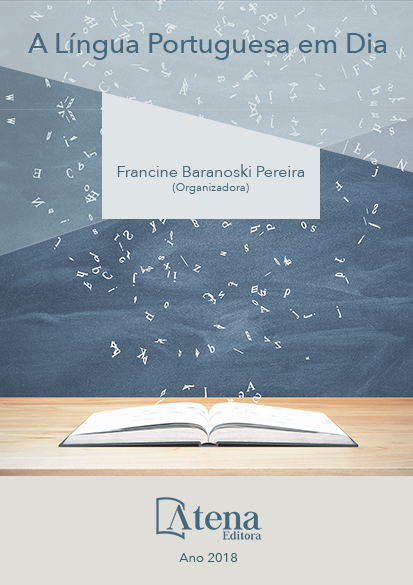
EM CENA A LENDA AMAZÔNICA: A MATINTA PERERA
As crianças que aprendem a
ler envolvidas em situações de leituras
compartilhadas em contato direto com a
literatura sentem-se motivadas a desenvolver
melhor estratégias de compreensão de textos
com condições em que sejam possibilitadas
produções textuais de forma significativa. Pois,
quando se utiliza de um texto sem levar em
conta as relações que o leitor possui, a partir de
seu repertório de leitura, apaga as diferenças, a
história e a experiência de leitura de vida que a
criança leva até a sua sala de aula. Em virtude
disto, o trabalho é fruto de uma experiência no
3º ano do Ensino Fundamental com objetivo de
despertar o interesse pela leitura e escrita dos
alunos, cujo fio condutor é a lenda Matinta Perera
por ser um gênero textual e folclórico presente
no imaginário dos estudantes paraenses e que
oferece elementos linguísticos que alargam as
suas experiências. Nossa análise fundamentase em autores como Schneuwly e Dolz (2004),
Geraldi (1997) e Rangel (2004).
EM CENA A LENDA AMAZÔNICA: A MATINTA PERERA
-
DOI: 10.22533/at.ed.8951822116
-
Palavras-chave: Lenda; Matinta Perera; Leitura; Escrita.
-
Keywords: Legend; Matinta Perera; Reading; Writing.
-
Abstract:
Children who learn to read
involved in situations of shared reading in
direct contact with literature feel motivated to
develop better strategies of understanding texts
and textual productions meaningful. For when
one uses a text without taking into account the
relations that the reader possesses from his
reading repertoire, it erases the differences,
the history and the experience of reading of
life that the child takes to his classroom. This
work is the result of an experience in the 3rd
year of Elementary School with the purpose of
awakening the interest in reading and writing
of students, whose main thread is the legend
Matinta Perera for being a textual and folk genre
present in the imaginary of the students of Pará
and offers Linguistic elements that broaden their
experiences. Our analysis based on authors
such as Schneuwly and Dolz (2004), Geraldi
(1997) and Rangel (2004).
-
Número de páginas: 15
- Rosalina Albuquerque Henrique


